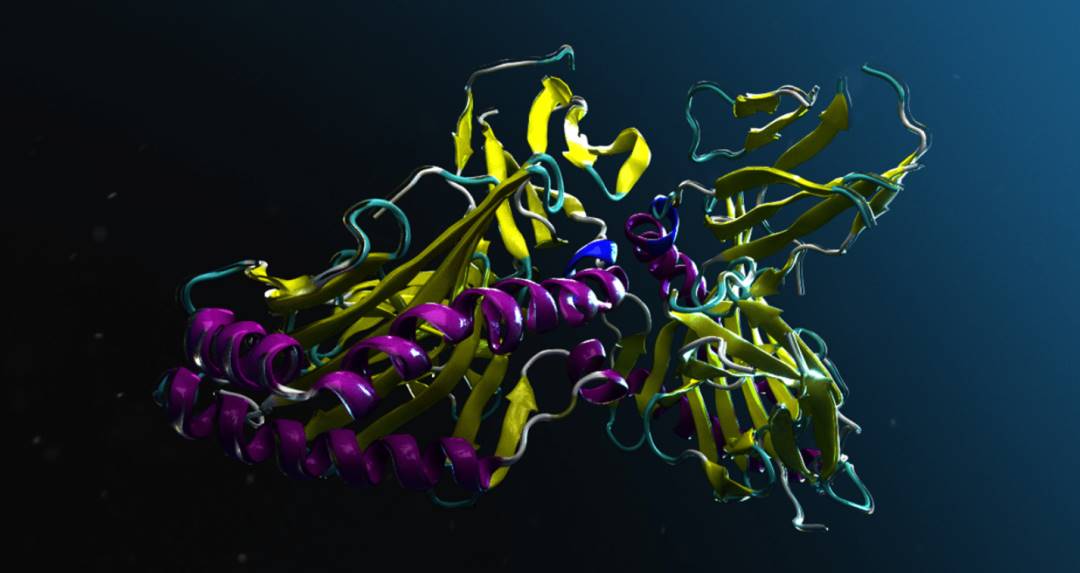Is the era of "ChatGPT" in biology about to begin?
Author: Heart of the Metaverse
EvolutionaryScale, a cutting-edge artificial intelligence research laboratory in biology, recently announced that it has secured over $142 million in seed funding and unveiled the milestone AI model ESM3. What unique concepts does this company, established just a year ago, have in the field of AI life sciences? What technological breakthroughs does their new large protein model bring?
A week ago, while the Metaverse was bustling with the video competition, the protein team EvolutionaryScale, which had been dissolved, secured over $142 million in seed funding, an amount that can be considered extraordinarily high in the entire biotechnology field.
In August of last year, Meta announced the dissolution of its protein folding team, Meta-FAIR. This purely "science + AI" project did not bring Meta quick profits, and Meta's decision to focus on commercializing AI seemed reasonable.
However, this underestimated team managed to embarrass Meta in just one year. Their latest release, ESM3, is considered a milestone generative AI model in the field of biology, opening up new possibilities for biological programming.
01. Project Overview in 1 Minute
1. Project Name: EvolutionaryScale
2. Establishment Time: July 2023
3. Product Introduction:
Developing large language models for creating new proteins and other biological systems—ESM, currently iterated to ESM-3.
4. Founding Team:
Chief Scientist: Alexander Rives (Ph.D. in Computer Science from New York University, former Facebook AI scientist)
Tom Sercu
Sal Candido
5. Funding Situation:
Completed a seed round of funding of up to $142 million on June 25, 2024. This round of funding was led by Nat Friedman and Daniel Gross, as well as Lux Capital, with participation from Amazon, NVentures (NVIDIA's venture capital division), and angel investors.
02. Unified Ideals of the Team
The advancement of artificial intelligence has created unprecedented opportunities for biological research, including the design of functional biological molecules, especially proteins. Applying artificial intelligence to protein design not only improves the efficiency and success rate of protein design, but also helps address some of the challenges humanity is currently facing, such as rapidly responding to outbreaks of infectious diseases.
Alexander Rives and others saw the gap in protein design and decided to develop large models based on deep learning, thus driving industrial-level protein design into the "fully automatic intelligent generation era".

Thus, EvolutionaryScale was born. It is a cutting-edge AI research laboratory focused on the field of biological science, dedicated to launching cutting-edge language large models in biology.
Interestingly, all eight members of the founding team of the company came from Meta's FAIR (Fundamental AI Research) department. Despite being defeated by the world-class social media giant, the core members of the initial team did not give up. Instead, they quickly entered a new battlefield, beginning to develop the next generation of models based on the achievements of the original team.

EvolutionaryScale's large models support research and development in fields such as health and environmental science, constantly exploring the expansiveness of biology, providing impetus for groundbreaking scientific research. The most significant achievement is the breakthrough in protein folding technology, as the ESM model reveals the structure of billions of macrogenomic proteins, helping scientists around the world simulate and understand proteins.
EvolutionaryScale aims to guide the development of AI technology in protein design through open and secure research methods.
As a signatory, the company has led over 160 global stakeholders from academia, government, and civil society to jointly develop this technology, ensuring its safety and reliability, thereby achieving the vision of benefiting human health and society.
It is due to the sense of responsibility to lead advanced AI technology in the field of biology that Alexander Rives and his team have never stopped.
Previously, EvolutionaryScale released the large language model ESM1, which is considered the first transformer language model for proteins, built by the founding team of EvolutionaryScale during their time at Meta's FAIR department. The upgraded model ESM2, with 15 million parameters, outperforms the old model ESM1b (with 650 million parameters).
Last week, EvolutionaryScale released the latest ESM3 AI model, a significant step towards the future of biology. With the capabilities of this model, it is possible to accelerate the discovery of widely applicable findings, aiding in the creation of proteins that help capture carbon, thus developing new cancer treatment methods.
03. Pioneer of AI Application in Biology
ESM3 is a generative AI model, mainly designed to generate new proteins. This model uses deep learning technology and is trained on a large amount of protein data to learn the relationship between protein sequences, structures, and functions.

ESM3's training uses over 10 trillion teraflops of computing power, making it the largest known computing scale in the field of biology. It was trained on a dataset of 2.78 billion protein sequences from the natural diversity on Earth, enabling it to simultaneously infer the sequence, structure, and function of proteins.
The main workflow of ESM3 can be briefly summarized in four steps:
Data collection and processing: EvolutionaryScale first collects a large amount of biological data from various sources, including gene sequences, protein structures, functional annotations, etc. These data are cleaned, standardized, and formatted for subsequent analysis and application.
Model training: Using deep learning algorithms and a large amount of computing resources, EvolutionaryScale trains the processed data to build large language models that can understand and predict biological patterns. These models not only have high accuracy but can also handle complex biological problems.
Generating new proteins: Through interactive prompts, ESM3 can generate new proteins that may take billions of years to evolve in nature.
Scientific validation: The generated new proteins will be validated through scientific experiments to determine their function and potential applications.
Currently, one of the most remarkable use cases of ESM3 is the generation of a new green fluorescent protein (GFP).
GFP is one of the most beautiful and unique proteins in nature, responsible for the luminescence of jellyfish and the vibrant fluorescence of corals. ESM3, through a series of thought processes, leaped over 500 million years of evolution to create this new fluorescent protein. This process may take over 500 million years in natural evolution, but ESM3 achieved this leap through computational methods.
The release of ESM3 has also brought revolutionary changes to the fields of drug discovery and synthetic biology.
In the field of drug discovery, ESM3 is capable of generating new proteins with specific biological activity, providing more candidate molecules for drug screening and optimization. Additionally, ESM3 can predict and optimize the interaction mechanisms between drugs and targets, providing a more scientific basis for drug design and development.

In synthetic biology, ESM3 can generate biological systems with specific functions, providing new solutions for biomanufacturing and bioenergy. For example, ESM3 can generate enzyme systems that efficiently convert carbon dioxide into organic compounds, providing a new approach for carbon capture and utilization.
EvolutionaryScale's ESM3 model represents a new milestone for AI in the field of biology. With its powerful generative capabilities and collaboration with industry leaders, ESM3 is expected to accelerate the discovery of new proteins and the design of biological systems, bringing revolutionary impact to future fields such as drug development, materials science, and environmental science.
04. Innovation Journey in Biology
Synthetic Biology: Programming Life
Synthetic biology is an important direction for the future development of EvolutionaryScale. By designing and synthesizing new genetic circuits and biological pathways, scientists can create organisms with specific functions.
- Genetic circuits are similar to electronic circuits, but they control biological processes within cells.
Genetic circuits can achieve precise control of specific gene expression within cells. For example, a genetic circuit can be designed to activate or deactivate the expression of specific genes when the cell detects a specific signal (such as a certain chemical or environmental change).
- Synthetic biological pathways involve the combination of multiple enzymes and metabolic pathways for the production of valuable compounds.
Through AI analysis and design, scientists can create new metabolic pathways, allowing organisms to synthesize compounds that cannot be produced naturally under normal conditions. For example, by redesigning microbial metabolic pathways, microbes can produce pharmaceutical intermediates, biofuels, or industrial chemicals.
- Cell factories involve the genetic engineering of microorganisms to efficiently produce target products under industrial conditions.
With AI-assisted design, scientists can modify the genomes of microorganisms to exhibit excellent production performance under specific conditions. For example, by editing the genes of yeast or bacteria, scientists can make these microorganisms efficiently produce antibiotics, enzymes, or other bioproducts.

If this technology continues to develop, it will not only drive the frontier of scientific research, but also bring important application prospects to fields such as medicine, environmental protection, and agriculture.
Data-Driven Personalized Medicine
EvolutionaryScale is advancing personalized medicine through AI and big data analysis, providing more precise and efficient medical services for patients.
Personalized medicine involves tailoring the most suitable treatment plan based on each patient's unique biological information and clinical data. One key area is genomic analysis. By comprehensively sequencing and analyzing a patient's genome, scientists can identify gene variations related to diseases.
EvolutionaryScale uses AI technology to rapidly and accurately analyze large amounts of genomic data to discover potential disease risk factors.
This approach can help doctors make diagnoses in the early stages of diseases and take preventive measures. For example, by analyzing mutations in the BRCA1 and BRCA2 genes of breast cancer patients, the risk of developing the disease can be predicted, leading to early screening and intervention.
Today, EvolutionaryScale is at the forefront of the fusion of biology and artificial intelligence, dedicated to achieving the programming and optimization of biological systems through continuous innovation and exploration. Subsequent breakthroughs may lead to a more intelligent and healthy future for humanity.
免责声明:本文章仅代表作者个人观点,不代表本平台的立场和观点。本文章仅供信息分享,不构成对任何人的任何投资建议。用户与作者之间的任何争议,与本平台无关。如网页中刊载的文章或图片涉及侵权,请提供相关的权利证明和身份证明发送邮件到support@aicoin.com,本平台相关工作人员将会进行核查。




